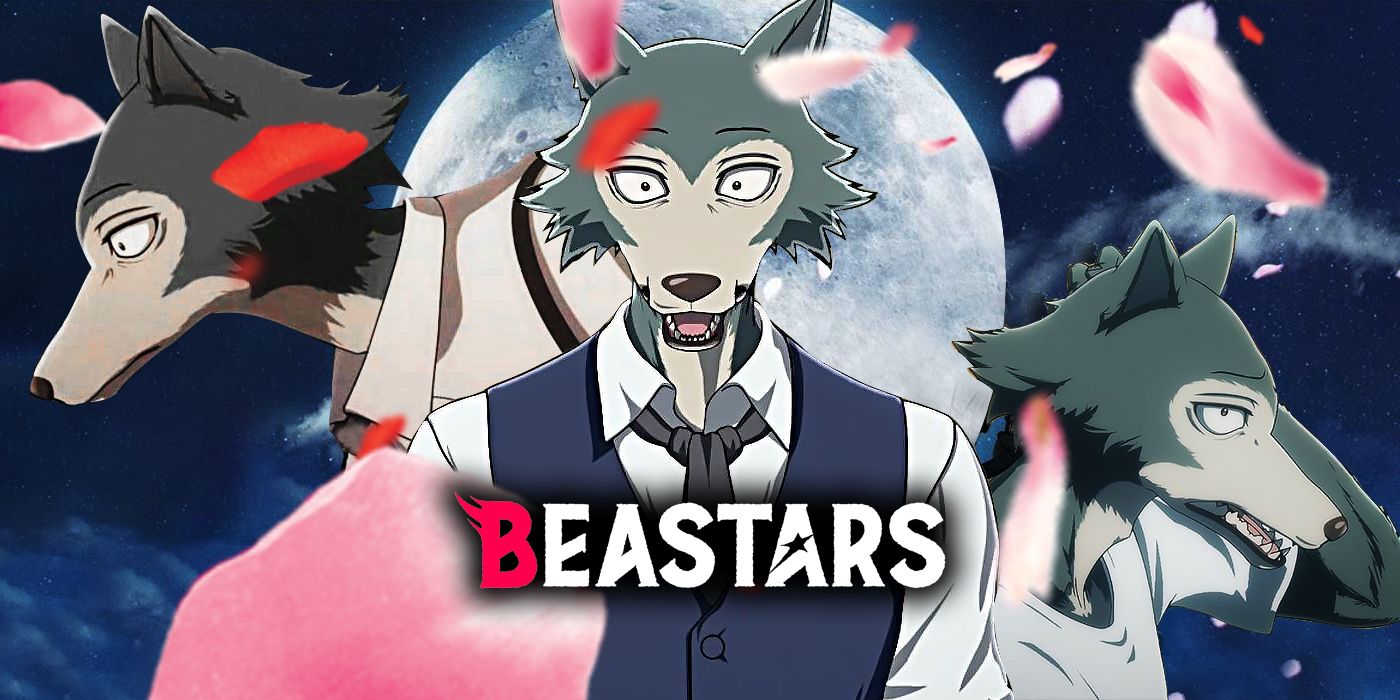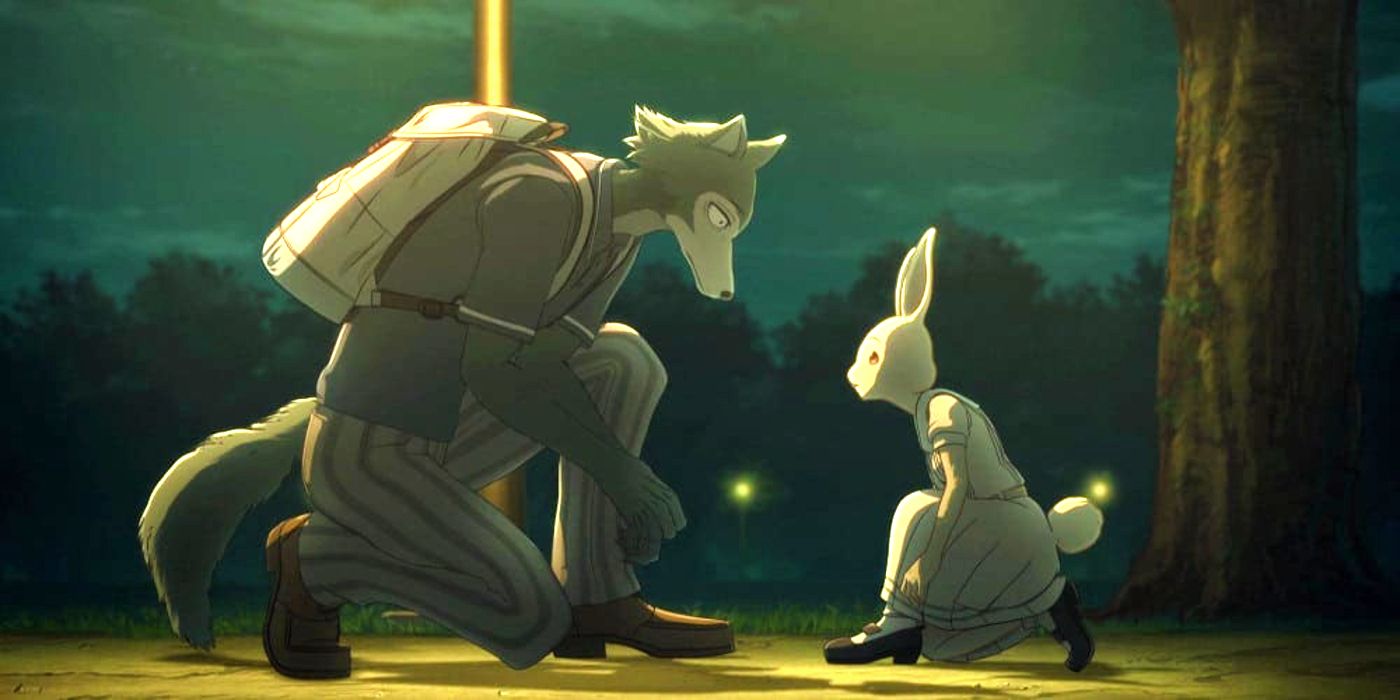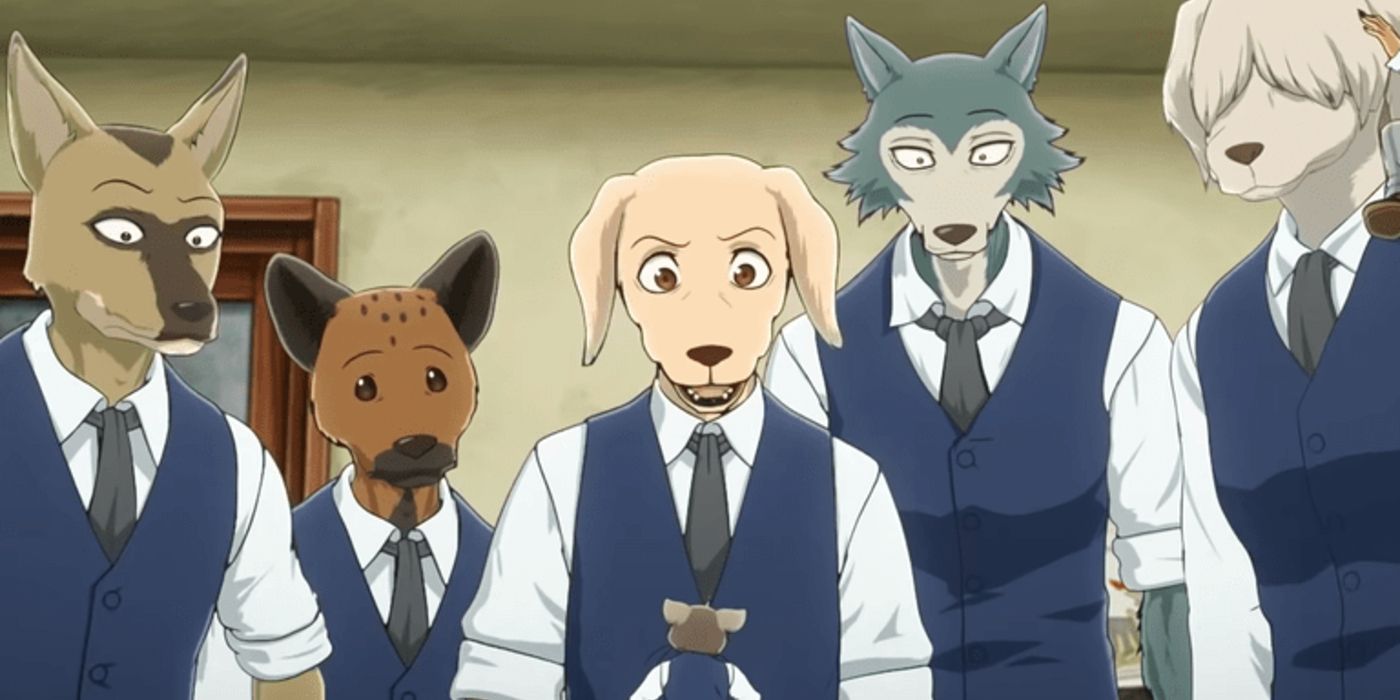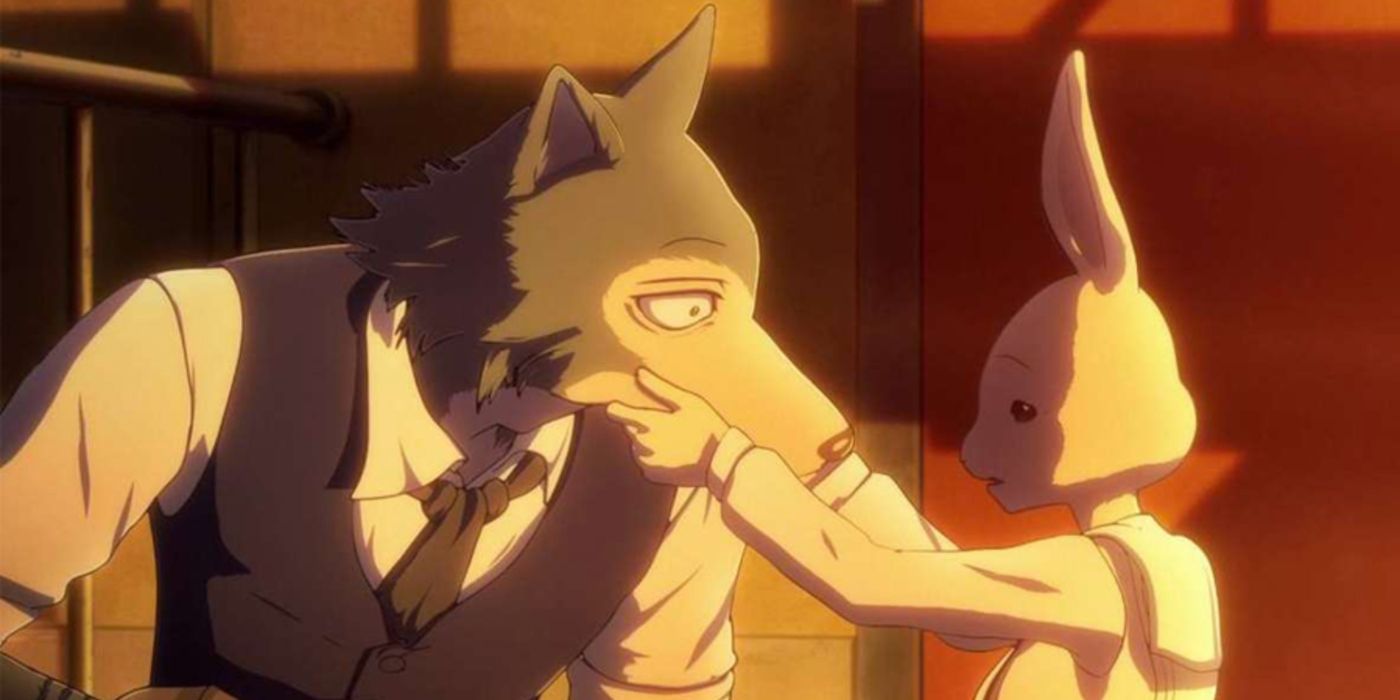The Netflix anime BEASTARS, based on Paru Itagaki's manga about a society of animals that are divided between 'herbivores' and 'carnivores', is complex. It is a story about the societal constructs we create which end up defining our lives, and the people those constructs end up affecting the most. To most effectively explore these ideas, BEASTARS utilizes a large and diverse cast. From the ambitious deer Louis, who has grown up witnessing society's most egregious injustices first-hand, to the friendly dwarf rabbit Haru, a girl who endures the cruelties of misogyny and slut-shaming, each major character in BEASTARS provides an interesting exploration of various social issues using the anthropomorphic world as a framing device.
The character I find most interesting, though, is the protagonist Legoshi. Legoshi is a soft-spoken teenage gray wolf who spends most of his free time in the drama club, one of the few places in the world where carnivores and herbivores work together side-by-side. As far as anime protagonists go, one would be forgiven for finding him a rather uninspired choice in a show with so many fascinating options - there is certainly no shortage of unassuming teenage boys in the world of anime heroes. However, BEASTARS is consistently a fantastic vehicle for telling compelling character stories, and Legoshi is no exception. In fact, he is perhaps the best example of this character archetype I've ever seen in an anime.
Teenagers are defined by being in a constant state of change, as puberty is literally causing their bodies to be at war with themselves. BEASTARS begins with Legoshi's fateful meeting with Haru, in which he "discovered the small rabbit and [his] instincts", a not so subtle way of indicating to us that this is also the beginning of Legoshi's own personal awakening in various ways. He spends much of the series obsessed with Haru; not necessarily Haru the person, but instead Haru the psycho-sexual concept, and this tears at him constantly. This focus on his sexuality, and the inner turmoil he experiences as a result, is a huge part of both his arc and BEASTARS as a whole.
Until this point, Legoshi hadn't considered himself to be much of a "carnivore" despite being a wolf, and that incongruity formed a core part of his identity. Consequently, the awakening of his carnivorous instincts causes Legoshi to feel a sort of identity crisis, and he begins to experience massive amounts of self-loathing that ends up informing his actions for the rest of the story. Haru is a fully realized character, but Legoshi's obsession with what she represents to him prevents him from seeing her as anything but the focus of his desire. Despite the allegorical window dressing, it's a recognizable state of turmoil that makes Legoshi's actions feel true to life, even though we know that he is making plenty of poor decisions along the way.
Then there are the more figurative changes that come with being a teenager. It's a time when you are still young enough to not fully understand your place in the world but desparately want to; a time when society simultaneously expects you to be young and stupid, but also prepared to enter the adult world. Legoshi struggles with these changes in a grounded way, too. When the world seemed more simple to him, it wasn't difficult for Legoshi to adopt a number of contradictory ideas. Now, though, he is plagued by constant self-loathing, finding it hard to square his desires with his morality. He finds himself split between several identities - a wolf, a friend to herbivores, a drama student, and ultimately a good person.
However, BEASTARS doesn’t provide Legoshi with any easy answers to the question of who he is. Early on, when the drama club visits the city for the first time, Legoshi ends up at the Black Market, a place where adult carnivores acquire meat to satisfy their urges. He finds his carnivore friends much more willing to partake in this culture than he ever expected, leading him to question if he even really knows the people around him. He meets Juno, another gray wolf who has an entirely different moral compass from him, fully embracing her carnivorous nature to the point of wanting to separate carnivores from herbivores entirely. Perhaps most importantly, he meets Gohin, a giant panda who acts as a sort of underground psychologist for carnivores who have become addicted to meat. Gohin tries to explain to Legoshi that his feelings and desires are normal, and even though he's right, Legoshi's attachment to his preconceived self-identity leaves him in denial, at least for a while.
It's difficult to look oneself in the mirror with complete honesty, let alone to actually enact the sort of life changes that come with that honesty, and BEASTARS isn't shy about putting Legoshi through that process. Throughout the series, Legoshi flips between being completely certain in himself - at one point declaring that he has "found [his] life's purpose at age 17" - and being completely unable to figure out what he should even be doing right now, let alone in the future. Yet despite this constant war of contradictions within him, Legoshi manages to feel like the same character the entire time, in large part because of the amount of empathy the series has for his situation. BEASTARS doesn’t excuse Legoshi’s savior complex or selfish desires, but instead tries to put them in a context that explains why and how he, and others like him, would behave this way. Despite his missteps, Legoshi genuinely wants to be the best person he can be, and that makes it possible to root for him even at his lowest points, in no small part because it's so easy to see oneself in both his faults and virtues. His awkwardness, the way he is constantly stumbling over himself trying to find his words, and his driving desire to find answers in a world that offers none are things that we all go through, which makes Legoshi one of the most compelling teenage protagonists out there.




